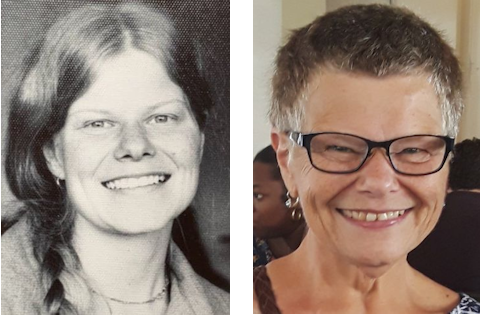
Beth grew up in Los Angeles in an ultra-conservative family. By the age of 15, she had joined the counterculture soon to be known as the hippies. She was active with the L.A. Free Press and the anti-war movement. She left UCLA and moved to Seattle in 1971.Five years later, she moved to Olympia to complete her degree. As one of the first staffers at the Columbia Street Co-op, Beth helped to build a culture of cooperation that empowered people to work together to bring healthy food into our community. Beth was also involved in a number of organizations to halt US intervention in Central America, including CISPES, Central America Action Committee and others. From there, Beth moved on to join the staff at Evergreen State College, first in the accounting department and then moved to the advising department to support students who were navigating their educations. She now lives in Lexington, Kentucky, and does volunteer work with a local refugee organization.
- Olympia F.O.O.D. Co-op from the Floor Up – By Beth HartmannThe first day I volunteered at the Co-op was the day we laid the linoleum at the downtown store. There were several people there, and it was hard to know where expertise was coming from, if there was any. I did my part, carefully placing tiles where the glue had been spread.
- Topless Inventory – By Beth HartmannThere was a new rule at the co-op. It was a warm summer, and men were regularly coming into the store without shirts on. Now this was troublesome for some of the women who saw inequality and male privilege in this display.
- From Here to El Salvador – By Beth HartmannAt home that night, the war was present in my mind and my dreams, the images and stories haunting me. I wasn’t the only one. We were soon meeting and talking about how to organize in support of the poor of El Salvador and confront the policies of our own government that perpetuated rampant abuses. No one envisioned an antiwar movement like we had with the Vietnamese War. This was a tiny country and U.S. involvement was hidden and more subtle than boots on the ground, though there were boots on the ground in some cases.
